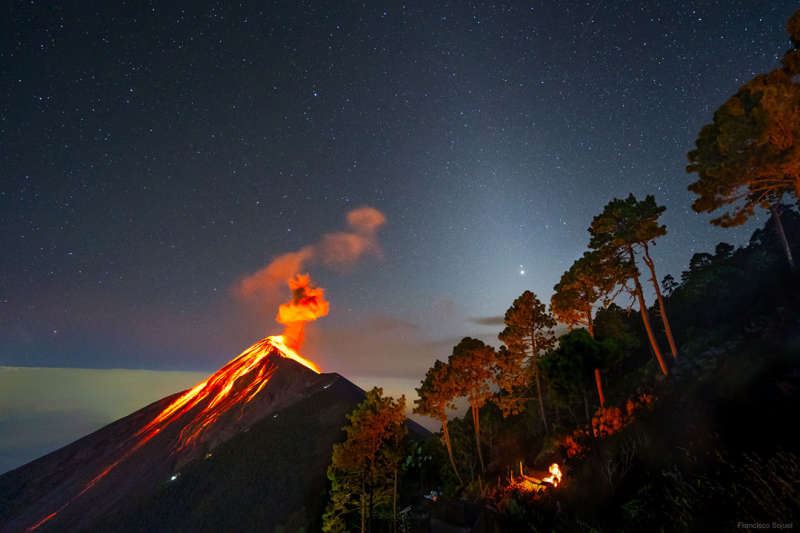
|
Credit & Copyright: Francisco Sojuel
Explanation:
Where can I see the
Great Conjunction?
Near where the Sun just set.
Directionally, this close passing of
Jupiter and
Saturn will be toward the southwest. Since the planetary pair, the Sun,
and the Earth are nearly in a geometric
straight line, the planets will be seen to set just where the Sun had set --
from every location on Earth.
When can I see the
Great Conjunction?
Just after sunset.
Since the two planets are so near the Sun directionally, they always appear in the
sky near the Sun, but can best be seen when the
Earth blocks the Sun but not the planets: sunset.
Soon thereafter,
Jupiter and Saturn will also set, so don't be late!
Is tomorrow night the only night that I can see the
Great Conjunction?
Tomorrow night the jovian giants will
appear the closest, but on
any night over the next few days they will appear unusually
close. Technically, the closest pass happens on 21 December at 18:20
UTC.
Will there be an
erupting volcano on the horizon near the
Great Conjunction?
Yes, for
example
if you live in Guatemala
where the featured image was taken.
Otherwise, generally, no.
In the featured image captured last week,
Jupiter and Saturn are visible toward the right,
just above a tree, and bathed in the diffuse glow of
zodiacal light.
Growing Gallery:
Notable images of the Great Conjunction submitted to APOD
|
January February March April May June July August September October November December |
| ||||||||||||||||||||||||||||||||||||||||||||||||
NASA Web Site Statements, Warnings, and Disclaimers
NASA Official: Jay Norris. Specific rights apply.
A service of: LHEA at NASA / GSFC
& Michigan Tech. U.
Based on Astronomy Picture
Of the Day
